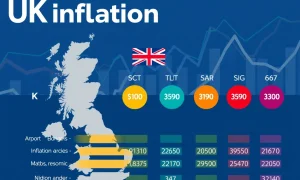Chancellor Rachel Reeves faces mounting pressure to implement groundbreaking tax reforms targeting wealthier pensioners as the UK’s fiscal stability hangs in the balance. Consequently, senior economists and former Treasury officials have united behind a bold proposal that could reshape Britain’s tax landscape fundamentally.
Growing Consensus for Taxing Wealthier Pensioners
An influential coalition of policymakers has delivered a stark warning about the UK’s unsustainable fiscal path. Specifically, signatories including former cabinet secretary Lord Gus O’Donnell and ex-Treasury minister Lord Jim O’Neill argue that tax wealthier pensioners represents a progressive solution. Moreover, they emphasize that property-rich older generations must contribute more substantially to public services.
The Fiscal Reality Demanding Immediate Action
The Chancellor confronts a daunting £20-30 billion deficit against her primary fiscal rule. However, some projections indicate this shortfall could reach £40 billion when considering weaker growth forecasts. Therefore, the economists propose three key reforms:
- Property tax modernization targeting valuable housing assets
- Pension wealth rebalancing for high-net-worth retirees
- Stamp duty and council tax structural reforms
Strategic Approach to Tax Wealthier Pensioners
The proposal carefully avoids increases to VAT, national insurance, or income tax. Instead, it focuses on progressive wealth redistribution mechanisms. Treasury officials already explore stamp duty reforms while considering council tax overhauls. Furthermore, the plan emphasizes long-term growth stimulation through increased public investment.
Broader Economic Implications
Beyond immediate revenue generation, the economists advocate for fundamental fiscal framework changes. Specifically, they recommend adopting IMF suggestions for single annual budget assessments. Additionally, they stress that public investment must rise above current flat GDP share projections to achieve sustainable growth.
FAQs
Why target wealthier pensioners specifically?
The policymakers argue that intergenerational fairness requires better-off older citizens to contribute more, particularly those with substantial property and pension wealth.
What taxes are being considered?
Reforms focus on property taxes, wealth taxes, and pension-related levies rather than increases to income tax, VAT, or national insurance.
How large is the budget shortfall?
Current estimates range between £20-30 billion, potentially reaching £40 billion when accounting for weaker growth forecasts.
What safeguards protect vulnerable pensioners?
The proposal specifically targets “better-off” older people, implying thresholds would protect those with modest incomes and assets.
When might these changes take effect?
The November Budget represents the earliest potential implementation date, pending government acceptance of the recommendations.
How would this affect economic growth?
Proponents argue that redirecting wealth to public investment would stimulate long-term growth while maintaining fiscal sustainability.








